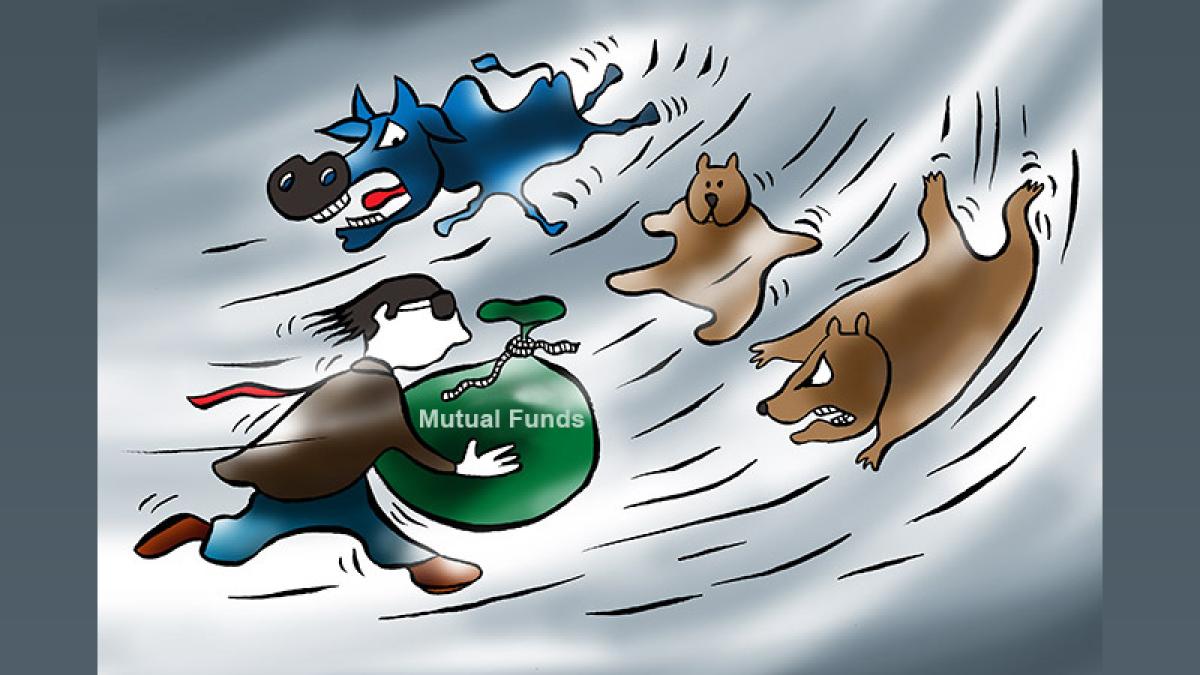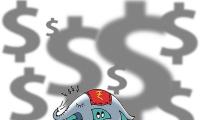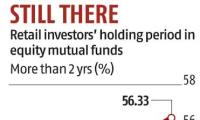Sebi's New Asset Class for High-Risk Investors: Expert Opinions
Sebi proposes a new asset class for high-risk investors, offering access to strategies like long-short equity funds and inverse ETFs. Experts believe this will bridge the gap between mutual funds and PMS.

New Delhi, Jul 17 (PTI) Capital markets regulator Sebi's proposal for introducing a new asset class for high-risk profile investors can help them gain access to a newer set of strategies including long-short equity fund and inverse Exchange-traded Fund (ETF).
The new asset class is aimed at bridging the gap between mutual funds and Portfolio Management Services (PMS) in terms of flexibility in portfolio construction.
The Sebi's consultation paper floated on Tuesday on 'new asset class' and creating a structure for differentiated, higher risk strategies looks very promising, Radhika Gupta, MD and CEO of Edelweiss Mutual Fund said.
"India is finally opening up to different investment products, styles and approaches. Passive, factor, inverse ETFs, alts and more. There is no single way to invest," she added.
In its consultation paper, the regulator said the new asset class will provide a regulated product with features like SIP (Systematic Investment Plan), higher risk-taking capability, and a higher ticket size, to meet the needs of the emerging category of investors.
The regulator suggested a minimum investment of Rs 10 lakh for the new asset class, which could be permitted to invest in derivatives for purposes beyond just hedging and rebalancing.
This higher threshold will deter retail investors from investing in this product, while attracting investors, with investible funds between Rs 10 lakh and Rs 50 lakh, who are being drawn to unauthorised and unregistered portfolio management service providers," the regulator said.
"Sebi's consultation paper for introducing new product classes with higher investment minimum than mutual funds and more freedom to invest can help investors gain access to a newer set of strategies like Long-short equities, inverse ETFs, etc which can help them express specific views on the market," Kaustubh Belapurkar, Director - Manager Research of Morningstar Investment Research India, said.
Long-short equity fund seeks to deliver returns by taking long and short positions in equity and equity-related instruments. For example, the fund may be bullish on the automobile sector and bearish on the IT sector and may invest in both these sectors by going long on the automobile sector and short on the IT sector.
Inverse ETF aims to generate returns that are negatively correlated to the returns of the underlying index.
Dezerv Co-Founder Sandeep Jethwani said higher-risk profile investors can now access regulated opportunities without the high minimum thresholds of PMS and AIF or resorting to unregulated structures that bode really well for the protection of wealth that India creates.
This new asset class is poised to leverage the exponential growth expected in managed assets (MFs, PMSs and AIFs) in the next 5-7 years, he added.
Sebi believes that over the years, a notable opportunity for a new asset class has emerged between mutual funds and PMS in terms of flexibility in portfolio construction.
"The absence of such an investment product appears to have inadvertently propelled the investors of this segment towards unregistered and unauthorised investment schemes. Such schemes often promise unrealistically high returns and exploit the investors' expectations for better yields, leading to potential financial risks," it added.
The new asset class is aimed at bridging the gap between mutual funds and Portfolio Management Services (PMS) in terms of flexibility in portfolio construction.
The Sebi's consultation paper floated on Tuesday on 'new asset class' and creating a structure for differentiated, higher risk strategies looks very promising, Radhika Gupta, MD and CEO of Edelweiss Mutual Fund said.
"India is finally opening up to different investment products, styles and approaches. Passive, factor, inverse ETFs, alts and more. There is no single way to invest," she added.
In its consultation paper, the regulator said the new asset class will provide a regulated product with features like SIP (Systematic Investment Plan), higher risk-taking capability, and a higher ticket size, to meet the needs of the emerging category of investors.
The regulator suggested a minimum investment of Rs 10 lakh for the new asset class, which could be permitted to invest in derivatives for purposes beyond just hedging and rebalancing.
This higher threshold will deter retail investors from investing in this product, while attracting investors, with investible funds between Rs 10 lakh and Rs 50 lakh, who are being drawn to unauthorised and unregistered portfolio management service providers," the regulator said.
"Sebi's consultation paper for introducing new product classes with higher investment minimum than mutual funds and more freedom to invest can help investors gain access to a newer set of strategies like Long-short equities, inverse ETFs, etc which can help them express specific views on the market," Kaustubh Belapurkar, Director - Manager Research of Morningstar Investment Research India, said.
Long-short equity fund seeks to deliver returns by taking long and short positions in equity and equity-related instruments. For example, the fund may be bullish on the automobile sector and bearish on the IT sector and may invest in both these sectors by going long on the automobile sector and short on the IT sector.
Inverse ETF aims to generate returns that are negatively correlated to the returns of the underlying index.
Dezerv Co-Founder Sandeep Jethwani said higher-risk profile investors can now access regulated opportunities without the high minimum thresholds of PMS and AIF or resorting to unregulated structures that bode really well for the protection of wealth that India creates.
This new asset class is poised to leverage the exponential growth expected in managed assets (MFs, PMSs and AIFs) in the next 5-7 years, he added.
Sebi believes that over the years, a notable opportunity for a new asset class has emerged between mutual funds and PMS in terms of flexibility in portfolio construction.
"The absence of such an investment product appears to have inadvertently propelled the investors of this segment towards unregistered and unauthorised investment schemes. Such schemes often promise unrealistically high returns and exploit the investors' expectations for better yields, leading to potential financial risks," it added.
You May Like To Read
TODAY'S MOST TRADED COMPANIES
- Company Name
- Price
- Volume
- Vodafone-Idea-L
- 11.65 (+ 3.56)
- 106772451
- Alstone-Textiles
- 0.28 ( -3.45)
- 44187760
- Mangalam-Industrial
- 0.88 ( -2.22)
- 39177573
- Sunshine-Capital
- 0.27 (+ 3.85)
- 35956340
- GMR-Airports
- 104.40 (+ 6.37)
- 30453005





